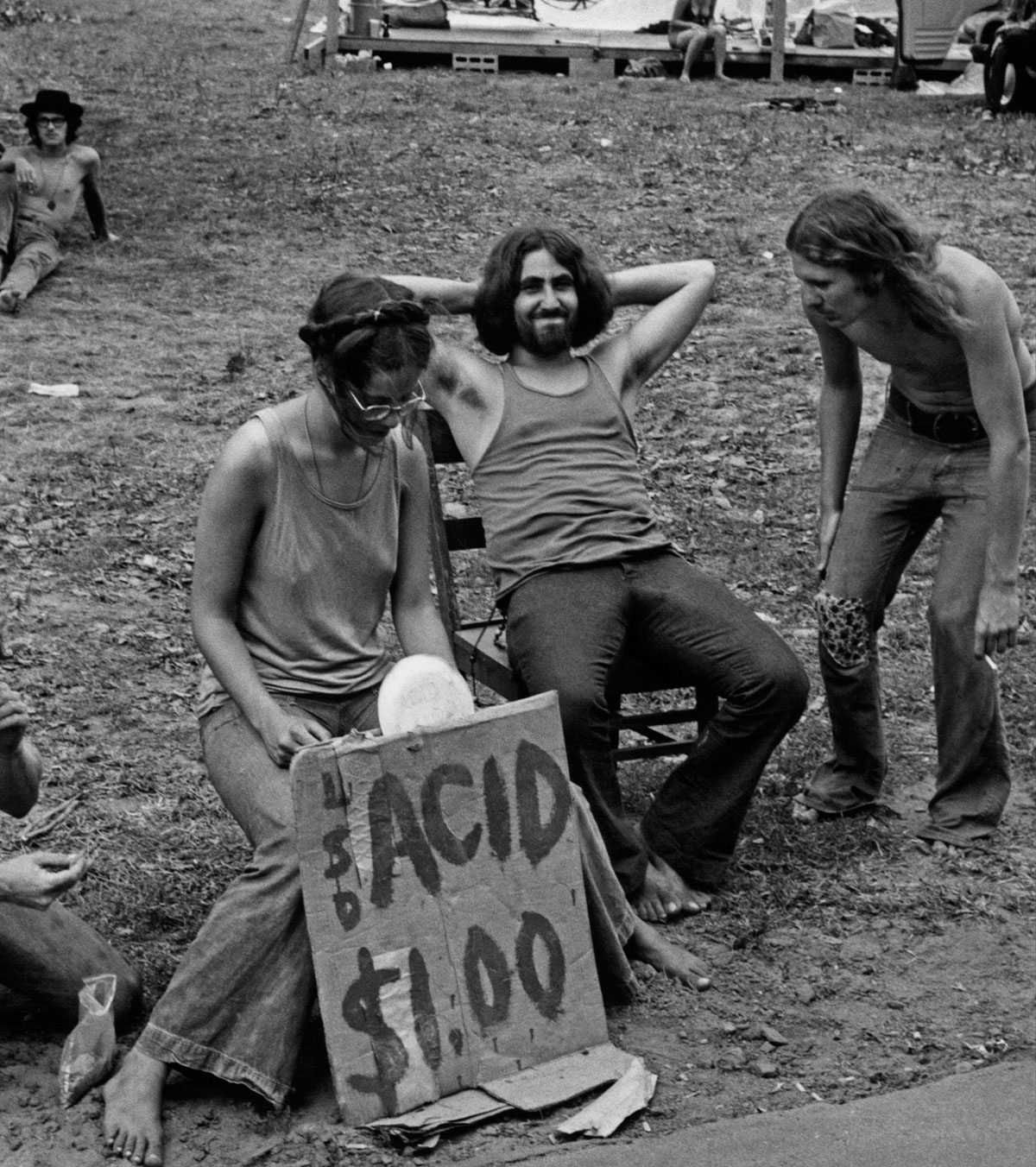New Scientist sent me down the LSD rabbit-hole recently in pursuit of its discoverer, Albert Hofmann. The subs did a cracking job as usual; but here’s the unwound version for those who have the time.
Image swiped from Leonard Freed/Magnum
A cloud of scorn fogs our understanding of LSD. It is justified. Those who fear The Man may remember the murderous human experiments conducted for the CIA’s MK-Ultra programme. Those who deplore social breakdown will recall Timothy Leary’s plan for young Americans to “turn on, tune in, drop out” – fuelled by his insouciant purchase order, in 1963, for one million doses of LSD and 2.5 million doses of psilocybine.
What of the substance itself, and the Swiss chemist who invented it, Albert Hofmann? In March this year, Hofmann’s own memoir, LSD: my problem child, was published by the Beckley Foundation Press in association with the OUP, in a new translation by Jonathan Ott. At once stiff as a board and lush as a jungle, Ott’s translation neatly captures the romance of Hofmann’s discovery. LSD provides the capstone for a grand European project to explore the psyche, begun by Goethe, developed by Purkinje and Mach, von Helmholtz and Exner, and obliterated by the rise of National Socialism in Germany. LSD is also the foundation of modern popular culture, inspiring everything from the personal computer to Gaia theory. For this reason, all writings about LSD are unavoidably – often comically – anachronistic. Whole pages of Hofmann’s own, deeply felt and beautifully written memoir could be dropped wholesale into a Thomas Pynchon novel with no-one any the wiser.
In an attempt to bring the LSD story up to date in time for the seventieth anniversary of its discovery, two of Hoffman’s close acquaintances, Dieter Hagenbach and Lucius Werthmüller, have assembled a copiously illustrated volume of stories, biographies, memoirs and reflections. Mystic Chemist is the sort of mess you get when your aspiration gets ahead of your writing time. Its by-the-numbers approach contains spadefuls of trivia of the “Mexico is the fifth largest country on the American continent” variety. It is horrible. It is also touching, sad and angry. And – so long as it’s not the first book a reader picks up about LSD – it is pretty much indispensable.
LSD is a psychiatric and medical tool. Not a medicine, since it tends to reinforce a person’s prevailing mood. Not a recreational substance: it triggers a psychosis, still poorly understood, that exposes to consciousness, and temporarily deconstructs, the processes by which a self maintains itself. Psychedelics were used as a spiritual aid for millennia, before falling as collateral damage in the West’s “war on drugs”. But regret at such a profound cultural loss cannot but be tempered by the thought that Greece, powered by the Eleusinian mysteries, still succumbed to decline, and Mexico, in its psilocybine haze, is a violent and impoverished political backwater. LSD does not harm people; nor does it make humanity evolve. The fault is not in LSD but in ourselves, says Hofmann: in “hypermaterialism, alienation from Nature through industrialisation and increasing urbanisation, lack of satisfaction with professional employment in an increasingly mechanised, lifeless, workaday world, ennui and purposelessness in a wealthy, oversaturated society, and the utter lack of a religious, nurturing, and meaningful philosophical foundation for life.”

